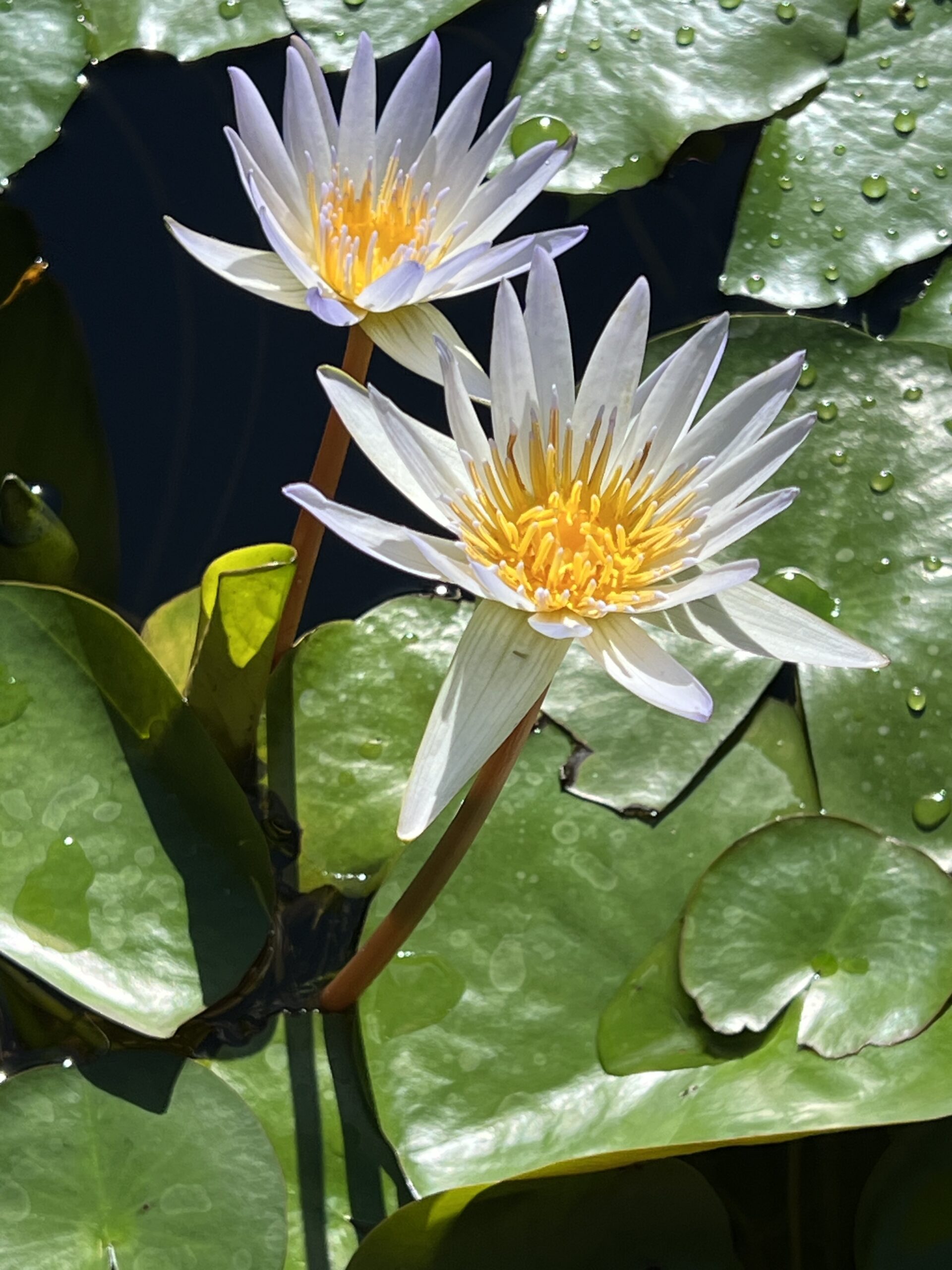I’m full of ideas for this blog post, which isn’t necessarily a good thing. Several themes have come to mind this week, starting with an exploration of “mana”, (more on that later, maybe), followed by “hō’ihi” (respect, reverence) closely related to “gratitude” (which undoubtedly has a Hawaiian word for it, too). Oh. That was easier than I thought: “mahalo” is the Hawaiian word for gratitude. Mahalo ke Akua. Or “Thanks be to God”. Wow. I’m learning all kinds of new stuff. Also the term for procrastinating, or “hō’opane’e a’e i ko”. Which I’m getting rather good at.
The chief reason for my hō’opane’e a’e i ko is that I’m concerned I won’t be able to do justice to any of the Hawaiian terms I am learning. And it means a great deal to me that I learn the terms that make Hawaiian culture so compelling to me, and understand how to make these qualities my “way in the world” when I leave the Big Island. Which is why “hō’ihi” (respect) comes out on top for this week’s blog.
Luana Kawa’a, a radio personality and specialist in Hawaiian culture explains hō’ihi as follows:
“One of the protocols we observe in our culture is hō’ihi, respect, especially for our elders. When we look a little deeper we realize that the word hō’ihi comes from the root word, ‘ihi, which means sacred, holy, majestic, dignified; treated with reverence.
“Hō'ihi is an important Hawaiian value. It is exemplified in our interactions with each other. We teach our keiki to hō'ihi their elders, to be respectful of adults, teachers and leaders in our community. We teach them to show hō'ihi for each other in school, on the playground, at home. We make sure they understand the importance of showing hō'ihi to their kūpuna [elders].”Recent events on the world stage, and in my small corner of it, have brought the values of respect and reverence, which to me are closely aligned with gratitude, to the forefront of my mind. With Mother’s Day just behind us (or at least it will be, by the time you read this), it’s a good time to express respect for the mothers in our lives, biological and otherwise. To recognize their efforts to nourish, teach, inspire and lead. And to do this in some tangible way. Hence this blog about respecting my elders, in every sense of the word.
My own mother was raised in her family’s hotel while her mother, a relatively young widow, was preoccupied with keeping the family’s business interests alive. On the Canadian prairies. During the Dust Bowl ’30s. No small feat. For lack of her mother’s attention, Mom had to depend on the examples of her friends’ families re: how to keep a house and raise a family. I stand on her shoulders just as my children stand on mine. For better or worse. As Paramahansa Yogananda would say, “I will take only the good from [my childhood] experiences, and preserve only the good in my memory.” These memories are precious to me, as was my mother.
Throughout my life there have also been teachers, role models and mentors who fit the description of mother in one way or another. In particular, Swami Radhananda, the late president of Yasodhara Ashram where I studied and trained as a teacher for many years, has had a profound influence on who I became as a wife and mother. Although we ultimately chose different paths, she was — first and foremost — a spiritual guide and mother to me. As they teach in Hawaïi, I have utmost respect and reverence for elders such as her, who took on the responsibility of preserving the quality, essence and integrity of their respective wisdom traditions.
A young Hawaiian friend, named Ihilani, has recently taken on the task of teaching me more about the “old Hawaïi”. She has explained how Hawaiian names, like certain Hawaiian terms, are freighted with deeper meaning. Her own name is an abbreviated combination of three terms that express the mission her elders gave her at birth: “Hō” is used to convert Hawaiian based nouns like “Ihi” (respect) into verbs meaning respecting, revering. “Lani” means “heavenly splendour”, “God”, “creation”, or other words connoting divinity. Thus her duty, since birth, has been to bridge the temporal with the spiritual, the secular with the sublime. To embody the highest and best qualities she can offer herself and others. And our planet.
Respecting, and revering, or “showing gratitude towards” are ideally practiced whenever Hawaiians enter the different domains of nature, the rivers, forests and oceans where our fellow creatures make their homes. A traditional chant, “E hō mai”, introduced by kūpuna Edith K. Kanakā’ole, is something done before entering the ocean or hiking the trails of the Big Island. The kūpuna sing this chant to ask permission to enter the ocean, and ask that all be granted safe returns.
Such rituals or traditions may seem superstitious — or even superfluous — to our modern sensibilities, but to perform them makes me stop and think, however briefly, about what I’m doing. The kūpuna make us more conscious of the many ways we humans impact our planet. Wherever we reside, we are an intricate part of, and responsible for respecting the ecosystems that we share with plants and animals. The kūpuna show us how the sunscreens we use can drastically effect the coral reefs. How the mud we track out of the forests can affect agriculture as far away as the mainland. Ultimately, we learn that we will reap what we sow. From that perspective, hō’ihi seems like the right way to go.
E hö mai chant: (Edith K. Kanakā’ole)
E hō mai ka ʻike mai luna mai e
(Grant us the knowledge from above)
0 nā mea huna noʻeau no nā mele e
(Concerning the hidden wisdom of the songs)
E hō mai
(Grant us)
E hō mai
(Grant us)
E hō mai e.
(Grant us these things.)
